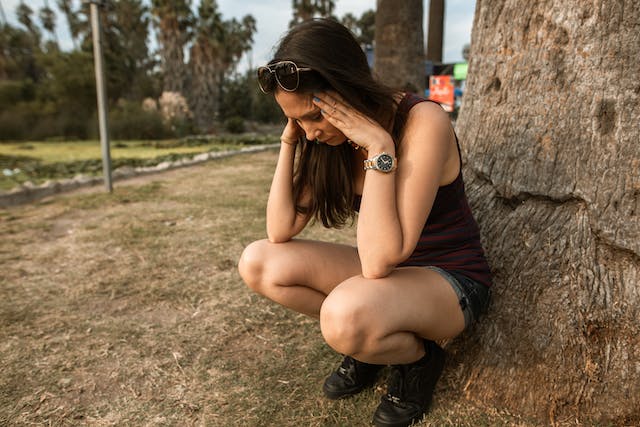Stress has always been a part of society, regardless of what time period we’re living in. However, when it’s your daily life that’s affected, it may seem as though no one else has it as badly as you do or as though your life isn’t fair.
Instead of focusing on the solutions, your mind always goes to worst-case scenarios and negativity. When those are the type of thoughts that start to cross your mind, you may be on a slippery slope to depression.
Finding help for depression before it becomes physically and mentally damaging is vital. Here, we’ll discuss why stress and depression are linked and how you can avoid that slippery decline that leads to depressive episodes.
The Dangers of Chronic Stress
Did you know that your body internalizes stress? When you are faced with internal or external stressors, your adrenal gland releases stress hormones like cortisol and adrenaline. If you don’t find ways to get these hormones out of your system, they can build up and turn into medical problems.
Left untreated, chronic stress leads to health issues such as:
● High blood pressure
● Insomnia
● Daytime fatigue
● Immune system disorders
● Obesity
● Diabetes
● Cardiovascular conditions
● Muscle pain
● Headaches
● Bruxism (teeth grinding)
These health issues make it challenging to go about your regular routines without interruption. When you’re always tired, in pain, or struggling to do basic activities of daily living, it’s understandable that your mood plummets, too. Without treatment, these bouts of the blues can become major depressive disorders, also known as clinical depression.
Social Withdrawal and Mental Health
It can take all the energy you have just to deal with the stressors in your life. Because you’re already mentally and physically exhausted and in “survival mode,” you start to pull away from any unnecessary social interactions. But although you think you’re doing this to help yourself, at some point, it is just as dangerous as the stress itself.
When you pull away from your friends and loved ones, you start to become lonely. You likely forget that you chose to self-isolate, and it becomes harder to get back into those old friendships and situations that used to be a normal part of life.
At this point, a therapist would likely diagnose you as “clinically depressed.” Social withdrawal increases the body’s stress response, though, and the best way to heal from the problem is to put yourself back in communication with others.
It can be a Catch-22. You’re too depressed to socialize, but socializing helps your depression.
Treating Stress-Induced Depression
As you feel caught in this painful cycle, remember that you don’t have to jump straight back into parties and uncomfortable events. Instead, invite a friend or loved one over for a movie and game night or head to their house for dinner. Dip your toes back into socializing, and then use the momentum you gain from those interactions to propel you slowly out of your depression.
Major depressive disorders are legitimate illnesses and often require treatment from a medical doctor and mental health therapist to heal. Through treatment, you’ll learn how to handle the stress that led to your depression, find ways to cope with the emotions that you’re feeling, and rebuild your self-confidence to get back into healthy living.


